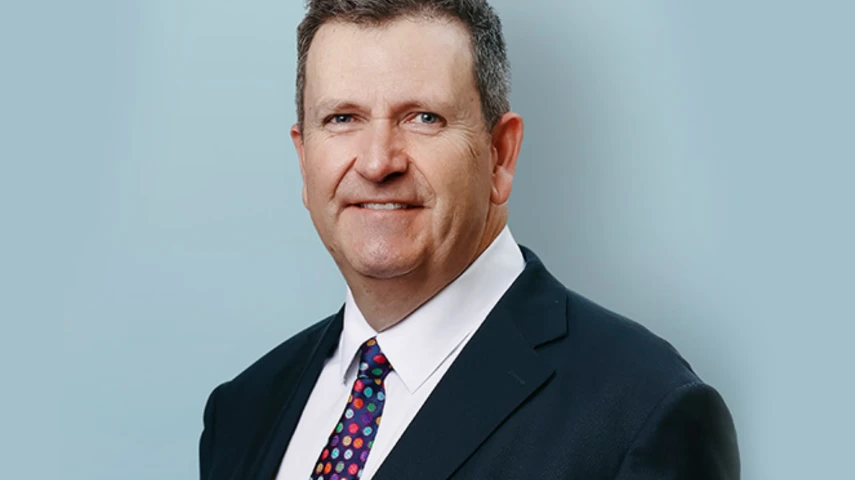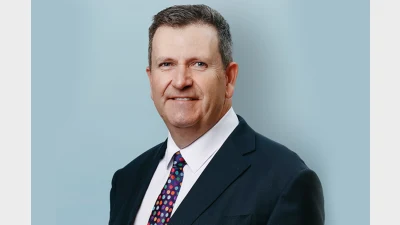The market trends top of mind for ART’s chief economist



With the assertion that market volatility can in fact lead to opportunity, Australian Retirement Trust’s Brian Parker has outlined how Australia’s second-largest super fund intends to put members’ money to work in 2024.
The $260 billion fund’s Balanced option delivered a double-digit return of 10.25 per cent in the year to 31 December 2023, bolstered by a “nice little rally” observed in bond and equity markets at the tail end of the year.
As at 31 January 2024, the figure has dipped slightly to 8.66 per cent, although it remains among the top three performers over a 10-year time horizon according to the latest SuperRatings analysis.
“One of the things we found in the last couple of years is that having an active, dynamic asset allocation program that allows you to capture volatility in markets in a cost-effective and time-efficient way has been very handy, so we’ve certainly made adjustments to our asset allocation in response to market volatility, and that’s been a very good thing,” Parker told Super Review.
“The last 12 months has been a lesson that trying to predict markets in the short term in any reliable way is very much impossible and so, as a super fund, we might have a view on how the next year might pan out, but we can’t decide portfolios based on our ability or anybody’s ability to forecast what’s going to happen in the next six to 12 months – because no one knows with any certainty.”
In the face of tightening monetary policy and an “aggressive” rise in interest rates, the chief economist observed most people expected 2023 to be a worrisome year; however, global sharemarkets delivered 20 per cent, while Australian sharemarkets “only” saw returns of 12 per cent.
“It ended up being a really good year despite a lot of negative calls at the start of it,” Parker pointed out.
“Right now, given what I’ve just said, you can take what I’m about to say with a grain of salt the size of a basketball, but we do think it’s going to be a more challenging year. The geopolitical environment is not getting better, if anything it’s getting worse. The US elections are going to be critical for how the geopolitical environment plays out over the coming years.”
Interest rates remain another key headwind, he said, contrary to much optimism surrounding potential rate cuts in the near future.
He explained: “It seems to be the case that even though markets are pricing in rate cuts, at least some of the world’s major central banks are not in any great hurry to be slashing rates at this point.
“The global economy is still feeling the negative effects of those interest rate increases of the past. To me, it means economic conditions are going to stay challenging.
“Markets are getting excited by the prospect the central bank might come to the rescue and they may start cutting interest rates, but I think some of the optimism around that might be misplaced. It’s worth remembering that if central banks are cutting interest rates aggressively, what does that tell you about the state of the economy at that point? It probably tells you the economy is looking pretty soft, and that has implications for earnings and hence share prices.”
Instead, the chief economist foresees a reality check for markets in the face of slower global growth and weaker earnings outlook in 2024.
However, as a super fund, ART has the luxury of thinking long term, he said.
“So, if we were to see weaker share prices over the course of 2024, would that provide us an opportunity? Absolutely – and we’d be looking to take advantage of any sharemarket weakness because we have the luxury of being able to wait for the eventual recovery, and make no mistake, every sharemarket downturn comes to an end,” Parker said.
“We’re ready to take advantage of volatility [this year] which is good because I think we’ll get plenty of that. We’re still finding good opportunities to put money to work in the unlisted asset space, in private equity, real estate, and infrastructure. We’re still finding opportunities where you get the kind of return premium you need to justify holding these assets.”
Elaborating on the fund’s perspective towards such illiquid assets, he said a key lesson from 2023 had been recognising the “power of unlisted assets.”
“The other lesson in the last few years [is] the power of unlisted assets. During a period where sharemarket returns are very strong, unlisted assets tend to lag, and that’s certainly been the case in the last 12 months. Though we’ve also seen that, in volatile times, those unlisted assets have certainly helped smooth the ride for members for the last few years,” Parker said.
“If I ask myself, can we buy these assets today and get a return from it that more than compensates us for the lack of liquidity and the risks involved, the answer is absolutely yes. So, it’s not all bad news out there.”
Market trends on ART’s mind
In September, ART announced its roadmap towards transitioning its investment portfolio towards net-zero greenhouse gas emissions by 2050.
Parker highlighted that, while trying to reduce carbon risk in the fund, the fund had observed the trend of decarbonisation as a critical opportunity.
He explained: “As the world seeks to decarbonise, this is going to require lots of capital. So as a provider of long-term capital, there’s going to be opportunities for us and other super funds here in Australia and pension funds globally to put money to work to be part of a solution and still generate a return for our members.”
The fund was also grappling with the future of property investing, he said, particularly offices in a post-COVID-19 world.
“We’ve been fortunate that we haven’t had as great an exposure to commercial property as some, but we have had some, and so we’re really asking ourselves what the future of commercial office looks like as an investable asset class, where is there going to continue to be good demand, and where is that demand going to be challenged,” he said.
While the answer was likely to vary across different industries, different geographies, and different demographics, he said part of ART’s answer rested in an active diversification strategy away from traditional real estate assets.
As such, ART pivoted towards assets like holiday parks, aged care, student accommodation, multifamily residential investments in the US, and self-storage facilities, all of which, Parker said, promised to deliver more reliable returns.
This diversification strategy will also assist the fund in building portfolios that can make the most of the artificial intelligence trend swamping the market.
“Do we have any great clarity on what it will mean for the world, for productivity, for businesses we invest in, [on] who will be the winners and make the full use of AI and grow their business, which business will be badly challenged or suffer? No, no one has any great certainty on that,” he told Super Review.
“Our best defence against not knowing is to just ensure we’re building portfolios that are as widely diversified as possible, so that we’re investing in businesses that are going to win in an environment where AI changes the landscape.
“At this point, I don’t think anyone has great clarity on how this is going to evolve over time, there’s certainly many [people] worrying and thinking about it, and we’re no different.”
Recommended for you
Insignia’s Master Trust business suffered a 1.9 per cent dip in FUA in the third quarter, amid total net outflows of $1.8 billion.
While the Liberal senator has accused super funds of locking everyday Australians out of the housing market, industry advocates say the Coalition’s policy would only push home ownership further out of reach.
Australia’s largest superannuation fund has confirmed all members who had funds stolen during the recent cyber fraud crime have been reimbursed.
As institutional investors grapple with shifting sentiment towards US equities and fresh uncertainty surrounding tariffs, Australia’s Aware Super is sticking to a disciplined, diversified playbook.













